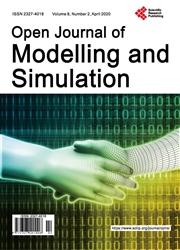Simulation of Flame Acceleration and DDT
引用次数: 0
Abstract
This paper presents a combustion model and a simulation method for modeling flame acceleration (FA) and deflagration to detonation transition (DDT) in a premixed gas. The method is intended to produce the most important effects in FA and DDT without resolving the flame front on the computational mesh. The simulations presented here are of stoichiometric hydrogen-air mixtures in a channel with repeated obstacles. The channel is 2 m long and 110 mm wide, with a height of either 20 mm or 40 mm. The obstacles gives a blockage ratio of 0.5. These values are the same as for experiments by other researchers and is used for comparison. The combustion model combines a turbulent burning velocity model and a two-step Arrhenius kinetic rate. The simulations show similar flame speeds and pressures as seen in experiments, and the process of DDT is shown to be caused by shock focusing and shock flame interactions. The simulations show that the quasi detonation regime is a series of transition to detonation events followed by failure of the detonation. Results from both 2D and 3D simulations are presented, since the 2D simulations show how the method can reproduce important effects.火焰加速与DDT的模拟
本文提出了一种模拟预混合气体中火焰加速(FA)和爆燃-爆轰过渡(DDT)的燃烧模型和模拟方法。该方法的目的是产生最重要的影响,在FA和滴滴涕不解决火焰前的计算网格。本文模拟的是具有重复障碍物的通道中的氢-空气化学计量混合物。通道长2米,宽110毫米,高20毫米或40毫米。障碍物的堵塞比为0.5。这些值与其他研究人员的实验值相同,用于比较。燃烧模型结合了湍流燃烧速度模型和两步阿伦尼乌斯动力学速率模型。模拟结果显示了与实验结果相似的火焰速度和压力,并表明DDT的过程是由激波聚焦和激波火焰相互作用引起的。模拟结果表明,准爆轰区是由一系列爆轰事件过渡到爆轰失效后形成的。给出了二维和三维模拟的结果,因为二维模拟显示了该方法如何再现重要的效果。
本文章由计算机程序翻译,如有差异,请以英文原文为准。
求助全文
约1分钟内获得全文
求助全文

 求助内容:
求助内容: 应助结果提醒方式:
应助结果提醒方式:


